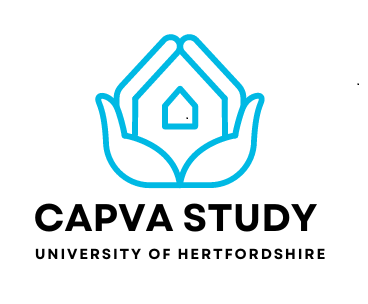The RISE CAPVA Study
If you need to exit or close this page quickly from your desktop device, use Ctrl + W (Windows) or Command + W (Mac).
What is the study about?
The RISE CAPVA Study will find out how well a new programme works to reduce child or adolescent to parent violence and abuse (CAPVA). The RISE CAPVA programme (developed by RISE Mutual) is a new intervention that works differently from other types of support. It teaches non-violent resistance to parents and carers (of children aged 9-17) to provide them with the knowledge and skills to respond to CAPVA.
Before the RISE CAPVA Programme can be used more widely, we need to know if it’s actually helpful and what it’s like for families who take part in it. So, this study will compare the RISE CAPVA Programme with the usual support available to families within their area. We will then find out what works best to help these families now and in the future.
How will the study find out what works best?
Families who agree to take part in the study will be randomly allocated to one of two groups. Half of families will get the usual support available in their area, known as the business as usual (BAU) group. The other half will receive the RISE CAPVA Programme. Parents or carers from each group will complete two surveys: one at the start of the study and another at the end about 9-12 months later. The results from the surveys will show whether the support received makes a difference to family relationships and CAPVA behaviours.
How can families take part in the study?
Parents or carers for a child aged 9-17 who is struggling with their feelings and behaviours and causing harm in the home may take part. If the child's parent/s or carer/s are interested, they need to tell a practitioner working with them. If the practitioner works for one of the local authorities supporting the study, they will send a study referral form on the family’s behalf once a parent or carer provides verbal consent to be referred.
Please find the study recruitment leaflet here
What will it be like to take part in the study?
For further information on what it would be like to take part in the study, access the information for parents or carers below:
Summary Participant Information Sheet
Full Participant Information Sheet
Please also contact us if you have any questions.
Consent
In addition to the video above, please see this further video which describes the RISE CAPVA Study and the process of giving informed consent for the study. This video is to support the process of attaining parent/carer consent for participation in the RISE CAPVA study and will be shared among referral teams and with parents or carers by any professionals supporting their families.
Potential Support for CAPVA
If you’re experiencing CAPVA or know someone who is, then please reach out to your local social services. If you or your family are in immediate danger, please contact 999.
You may find some useful information below. These links are open to anyone, whether referred to our study or not, and whether or not you take part in this study.
This study is funded by the Youth Endowment Fund (YEF), a charity set up in March 2019 to help stop children and young people from getting involved in violence. YEF funds projects and studies to find out what works best in supporting kids, teens, and their families affected by violence. Read more about YEF.
Find out more about the work of RISE Mutual CIC.
